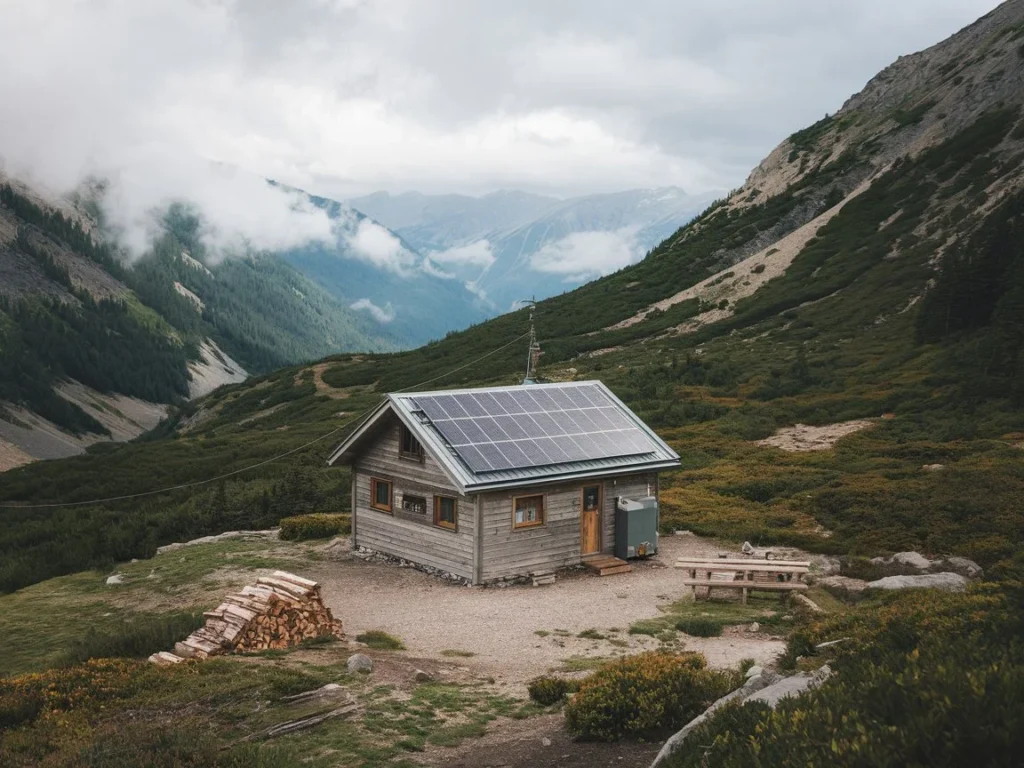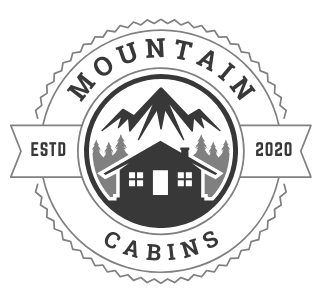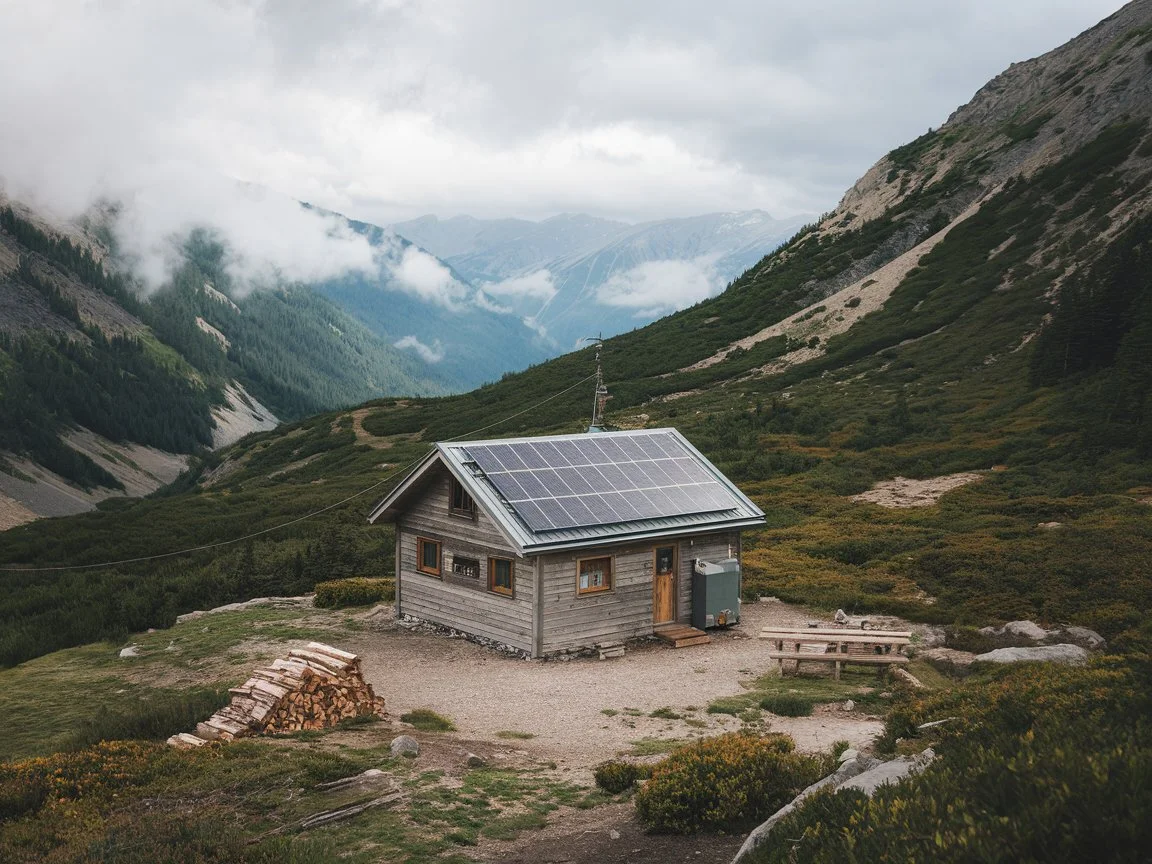
Off-Grid Living in a Remote Mountain Cabin is a lifestyle that embraces simplicity, self-sufficiency, and a deep connection to nature. It means stepping away from modern conveniences like electricity grids, running water, and internet access, and instead relying on renewable resources and traditional skills. For many, the appeal lies in the freedom to live sustainably, the peace of solitude, and the chance to escape the fast-paced, technology-driven world.
Staying in a remote mountain cabin is one of the most rewarding ways to experience off-grid living. Surrounded by breathtaking landscapes, you’ll learn to appreciate the basics of life while reconnecting with yourself and the environment. However, it’s not without its challenges—adapting to a self-sufficient lifestyle requires preparation, resilience, and a willingness to embrace the unknown.
This guide will walk you through everything you need to know about off-grid living in a remote mountain cabin. From choosing the right cabin and mastering essential survival skills to adapting to a self-sufficient lifestyle and preparing for your first stay, we’ll cover it all. Whether you’re planning a short-term retreat or considering a permanent move, this guide will help you make the most of your off-grid adventure.
1. Choosing the Right Off-Grid Cabin
Selecting the perfect off-grid cabin is the first step toward a successful remote living experience. The right cabin will depend on your needs, preferences, and level of comfort with self-sufficiency. Here’s what to consider:
- Location, Accessibility, and Climate: The location of your cabin is crucial. Do you want to be deep in the wilderness, or would you prefer a cabin that’s somewhat accessible by road? Consider the climate—snowy mountain regions require cabins with strong insulation and heating systems, while warmer areas may need better ventilation and cooling solutions. Accessibility is also important; remote cabins may require hiking or off-road vehicles to reach, which can add to the adventure but also the challenge.
- Types of Off-Grid Cabins: Off-grid cabins come in various styles and levels of self-sufficiency. Solar-powered cabins are popular for their renewable energy sources, while rustic cabins may rely on wood stoves and manual water pumps. Some cabins are fully self-sustaining, with features like composting toilets, rainwater collection systems, and vegetable gardens. Decide what level of comfort and independence you’re comfortable with.
- Finding Off-Grid Rentals or Properties: If you’re not ready to buy, there are plenty of off-grid cabin rentals available. Platforms like Airbnb, Hipcamp, and Off-Grid Rentals specialize in unique, remote properties. For those considering purchasing, websites like LandWatch and local real estate agents can help you find off-grid cabins for sale. Always visit the property beforehand to ensure it meets your expectations.
Choosing the right cabin sets the foundation for a rewarding off-grid experience. Take your time to research and find a cabin that aligns with your goals and lifestyle.
2. Essential Survival Skills for Off-Grid Living
Living off-grid in a remote mountain cabin requires a set of essential survival skills to ensure your safety, comfort, and self-sufficiency. Here are the key skills you’ll need to master:
- Sourcing Clean Water: Access to clean water is a top priority. Learn how to collect and purify water from natural sources like streams, rivers, or rainwater. Invest in a high-quality water filtration system or learn traditional methods like boiling or using purification tablets. Rainwater collection systems can also be a sustainable solution for off-grid living.
- Generating Power: Electricity is a luxury in off-grid living, but it’s not impossible to have. Solar panels are the most common and eco-friendly option for generating power. Wind turbines can be effective in windy areas, while gas-powered generators serve as a backup for emergencies. Learn how to maintain and optimize these systems to ensure a steady power supply.
- Managing Food Storage and Cooking: Without easy access to grocery stores, food storage and preparation become critical. Stock up on non-perishable items like canned goods, dried foods, and grains. Learn how to cook using off-grid methods, such as wood stoves, propane cookers, or open fires. If you’re staying long-term, consider starting a small garden or raising chickens for fresh produce and eggs.
Mastering these survival skills will not only make your off-grid experience more comfortable but also empower you to thrive in a self-sufficient lifestyle.
3. Adapting to a Self-Sufficient Lifestyle
Living off-grid in a remote mountain cabin means embracing a self-sufficient lifestyle that’s vastly different from modern urban living. Here’s how to adapt and thrive in this unique environment:
- Living Without Internet and Phone Signals: One of the biggest adjustments is disconnecting from technology. Without internet or phone signals, you’ll need to find alternative ways to stay informed and entertained. Bring books, board games, or musical instruments to keep yourself occupied. For emergencies, consider investing in a satellite phone or a two-way radio.
- Heating and Cooling Solutions: Staying comfortable in a mountain cabin requires effective heating and cooling systems. Wood stoves are a classic choice for heating, providing warmth and a cozy atmosphere. Ensure your cabin is well-insulated to retain heat in winter and stay cool in summer. For warmer months, cross-ventilation and shade from trees can help keep the cabin comfortable.
- Dealing with Wildlife and Natural Hazards: Remote mountain areas are home to wildlife like bears, deer, and smaller critters. Learn how to store food securely and manage waste to avoid attracting animals. Be aware of natural hazards like wildfires, landslides, or heavy snowfall, and have a plan in place for emergencies. Carrying bear spray, knowing basic first aid, and understanding local weather patterns are essential for staying safe.
Adapting to a self-sufficient lifestyle takes time and effort, but it’s incredibly rewarding. By learning to live in harmony with nature, you’ll gain a deeper appreciation for the simplicity and beauty of off-grid living.
4. The Mental and Emotional Aspects of Off-Grid Life
Living off-grid in a remote mountain cabin isn’t just a physical challenge—it’s also a mental and emotional journey. Here’s what to expect and how to navigate the psychological aspects of this unique lifestyle:
- Finding Peace in Solitude and Nature: One of the greatest rewards of off-grid living is the opportunity to disconnect from the noise of modern life and reconnect with yourself. The tranquility of nature, the sound of rustling leaves, and the absence of constant notifications can be incredibly calming. Use this time to reflect, meditate, or simply enjoy the stillness.
- The Challenges of Isolation and How to Overcome Them: While solitude can be peaceful, it can also feel isolating, especially if you’re used to a busy social life. To combat loneliness, establish a routine that keeps you engaged. Journaling, creative hobbies like painting or writing, and regular communication with loved ones (when possible) can help maintain a sense of connection.
- Staying Productive and Entertained: Without the distractions of modern life, you’ll need to find ways to stay productive and entertained. Embrace hands-on activities like gardening, woodworking, or cooking from scratch. Explore the outdoors with hiking, fishing, or wildlife watching. These activities not only keep you busy but also deepen your connection to the environment.
Off-grid living can be a transformative experience, offering a chance to slow down and appreciate the simple things in life. By embracing the mental and emotional challenges, you’ll emerge with a stronger sense of self and a renewed perspective on what truly matters.
5. Preparing for Your First Off-Grid Stay
If you’re planning your first off-grid stay in a remote mountain cabin, preparation is key to ensuring a smooth and enjoyable experience. Here’s how to get ready for your adventure:
- Packing Checklist for a Remote Experience: Packing for an off-grid stay requires careful planning. Essentials include warm clothing, sturdy footwear, and weather-appropriate gear. Don’t forget items like a first-aid kit, flashlight, multi-tool, and portable water filter. If you’re cooking, bring non-perishable food, a camping stove, and basic utensils. For entertainment, pack books, games, or a journal.
- Safety Precautions and Emergency Plans: Safety should be a top priority. Inform someone about your travel plans and expected return date. Carry a map, compass, or GPS device, and learn basic navigation skills. Prepare for emergencies by packing a satellite phone, emergency blanket, and fire-starting tools. Familiarize yourself with the area’s wildlife and natural hazards, and know how to respond in case of an emergency.
- How to Transition from City Life to Off-Grid Temporarily: If you’re used to city life, transitioning to off-grid living can be a shock. Start by unplugging from technology a few days before your trip to ease into the slower pace. Mentally prepare for the lack of modern conveniences and embrace the simplicity of off-grid living. Use this time to practice mindfulness and appreciate the beauty of nature.
By preparing thoroughly, you’ll set yourself up for a successful and memorable off-grid stay. It’s a chance to step out of your comfort zone and discover the joys of self-sufficiency and solitude.
Conclusion
Off-grid living in a remote mountain cabin is a unique and transformative experience that offers a chance to disconnect from the chaos of modern life and reconnect with nature. From choosing the right cabin and mastering essential survival skills to adapting to a self-sufficient lifestyle and preparing for your first stay, this guide has covered everything you need to know to embark on your off-grid adventure.
While the challenges of off-grid living—like isolation, limited resources, and adapting to a slower pace—can feel daunting, they are also opportunities for growth and self-discovery. The peace of solitude, the beauty of untouched landscapes, and the satisfaction of living sustainably make it all worthwhile.
If you’re curious about off-grid living, start with a short-term stay to test the waters. Use this time to learn, adapt, and decide if it’s the right lifestyle for you. Whether you’re seeking a temporary escape or considering a permanent change, off-grid living offers a chance to simplify your life and find joy in the essentials.
So, pack your bags, leave your worries behind, and embrace the adventure of off-grid living. Your mountain cabin retreat awaits!
For Finding Off-Grid Cabins
- Airbnb (Off-Grid Stays)
https://www.airbnb.com/s/off-grid/homes
A great platform to find unique off-grid cabins for short-term stays.

